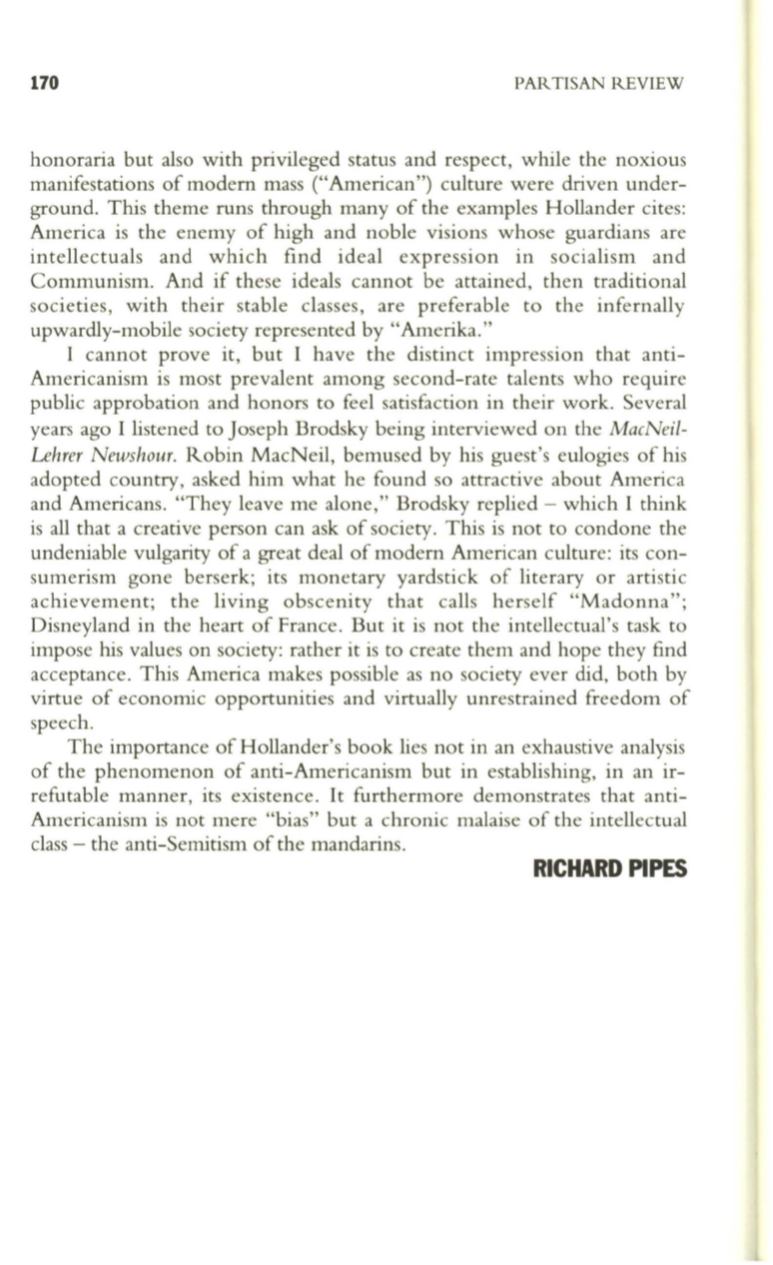
170
PARTISAN REVIEW
honoraria but also with privileged status and respect, while the noxious
manifestations of modern mass ("American") culture were driven under–
ground. This theme runs through many of the examples Hollander cites:
America is the enemy of high and noble visions whose guardians are
intellectuals and which find ideal expression in socialism and
Communism. And if these ideals cannot be attained, then traditional
societies, with their stable classes, are preferable to the infernally
upwardly-mobile society represented by "Amerika."
I cannot prove it, but I have the distinct impression that anti–
Americanism is most prevalent among second-rate talents who require
public approbation and honors to feel satisfaction in their work. Several
years ago I listened to Joseph Brodsky being interviewed on the
MacNeil–
Lehrer Newshour.
Robin MacNeil, bemused by his guest's eulogies of his
adopted country, asked him what he found so attractive about America
and Americans. "They leave me alone," Brodsky replied- which I think
is
all
that a creative person can ask of society. This is not to condone the
undeniable vulgarity of a great deal of modern American culture: its con–
sumerism gone berserk; its monetary yardstick of literary or artistic
achievement; the living obscenity that calls herself "Madonna";
Disneyland in the heart of France. But it is not the intellectual's task to
impose his values on society: rather it is to create them and hope they find
acceptance. This America makes possible as no society ever did , both by
virtue of economic opportunities and virtually unrestrained freedom of
speech.
The importance of Hollander's book lies not in an exhaustive analysis
of the phenomenon of anti-Americanism but in establishing, in an ir–
refutable manner, its existence. It furthermore demonstrates that anti–
Americanism is not mere "bias" but a chronic malaise of the intellectual
class - the anti-Semitism of the mandarins.
RICHARD PIPES


